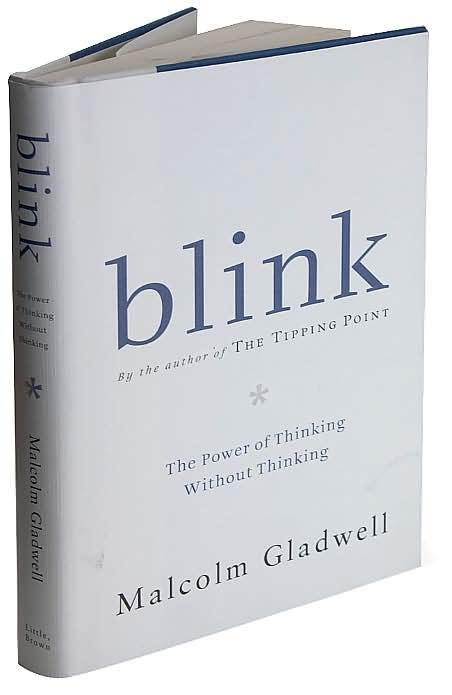
Blink: The Power of Thinking Without Thinking is third of Malcolm’s book that fascinated me. After reading Malcolm my realization is that, if you read any of his books and understand, you will think he is brilliant and if you read and don’t understand then also you will verdict him as brilliant!
For a long time I was thinking of writing reviews on books I read but for whatever reason I could not. However, after reading Blink, it seemed I should write a review on this great book. This is the result:
What about: The book is about the power of our snap judgment, repulsive intuition, rapid cognition and about the power of our adaptive unconsciousness.
The central idea: As Malcolm says: I think we are innately suspicious of power of our rapid cognition. We live in a world that assumes that the quality of a decision is directly related to the time and effort that went into making it. When doctors are faced with a difficult diagnosis, they order more tests, and when we are uncertain about what we hear, we ask for a second opinion. And what do we tell our children? Haste make waste. Look before you leap. Stop and think. Don’t judge a book by its cover. We believe that we are always better off gathering as much information as possible and spending as much time as possible in deliberation. We really only trust conscious decision making. But there are moments, particularly in times of stress, when haste does not make waste, when our snap judgments and first impressions can offer a much better means of making sense of the world. The first task of Blink is to convince you of a simple fact: decisions made very quickly can be every bit as good as decision made cautiously and deliberately. Blink is not just only about the power of glance but also about the moment when our instincts betray us.
What it will change: Blink is about very smallest components of our everyday lives and about how they are important for us in making decisions in life. It also shows how all these small issues affect our way of thinking, decision making and more. According to Malcolm, understanding the slightest particle of signals around us would change a lot of things from the way we fought wars to the products we see on the shelves, to the way we train cops to the way couples are counseled to the way job interviews are conducted.
Best quote: “I always considered scientific opinion more objective than esthetic judgments. Now I realize I was wrong”- Grety’s curator of antiquities Marion True.
Why to read: It is a book packed with brilliant ideas and extraordinary thoughts. It is not only about the power of snap judgment rather about how can we use this power and what happen when we fail to use it. So, if you like to read something with wow! factor and you like to thrilled by the power of ideas, belief my snap judgment, read this book you will be delighted.
